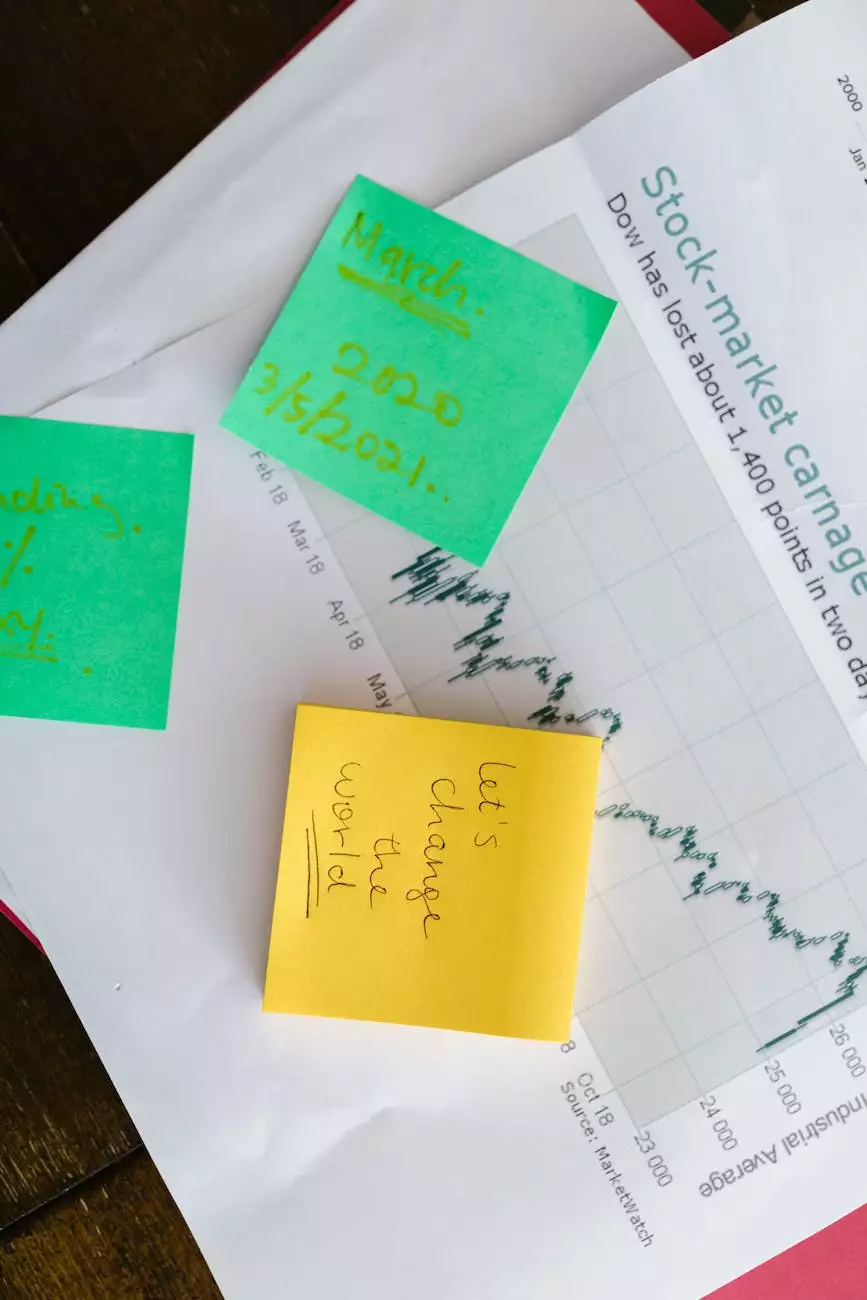Recovering from Personal Bankruptcy

Welcome to Social Service of America's resource page on recovering from personal bankruptcy. We understand that facing bankruptcy can be a challenging and overwhelming experience. However, we believe that with the right information, guidance, and support, you can rebuild your life and take positive steps towards financial stability and well-being.
Understanding Personal Bankruptcy
Personal bankruptcy is a legal process that provides individuals with overwhelming debt an opportunity to obtain relief from their financial burdens. It is essential to have a clear understanding of the different types of bankruptcy and their implications on your financial and personal life.
Chapter 7 Bankruptcy
In Chapter 7 bankruptcy, also known as "liquidation bankruptcy," a trustee is appointed to sell your non-exempt assets to pay off your creditors. This form of bankruptcy provides individuals with a fresh start by discharging most unsecured debts, such as credit card debt and medical bills.
During the Chapter 7 bankruptcy process, it is crucial to work closely with a qualified bankruptcy attorney to ensure that you understand the eligibility criteria, the impact on your credit score, and the long-term financial implications.
Chapter 13 Bankruptcy
Chapter 13 bankruptcy, also known as "reorganization bankruptcy," allows individuals with a regular income to develop a 3-5 year repayment plan to repay their debts. This form of bankruptcy helps you keep your assets while gradually paying off your creditors.
Working with an experienced bankruptcy attorney can help you navigate the Chapter 13 bankruptcy process, including developing a realistic repayment plan and ensuring compliance with court requirements.
Rebuilding Your Finances after Bankruptcy
Recovering from personal bankruptcy requires a comprehensive approach that extends beyond the legal aspects. It is crucial to take proactive steps towards rebuilding your financial foundation and developing healthy money management habits. Here are some essential strategies to consider:
Create a Budget
Establishing a budget is crucial for regaining control of your finances after bankruptcy. Analyze your income, expenses, and debt obligations to develop a budget that allows for responsible spending and prioritizes debt repayment.
Consider tracking your expenses using online budgeting tools or smartphone applications to gain visibility into your spending patterns and make mindful financial decisions.
Build an Emergency Fund
Unexpected expenses can derail your progress towards financial stability. Establishing an emergency fund can help you weather unforeseen circumstances without resorting to credit cards or taking on additional debt.
Set a realistic savings goal and contribute a portion of your income regularly. It may take time, but having an emergency fund will provide you with peace of mind and protect you from falling back into a cycle of debt.
Reestablish Credit Responsibly
Although bankruptcy affects your credit score, it is possible to rebuild it over time by taking proactive steps. Begin by regularly monitoring your credit report to ensure accuracy and identify any discrepancies.
Consider obtaining a secured credit card or a credit builder loan to start rebuilding your credit history. Make small, manageable purchases, and consistently pay your bills on time to demonstrate responsible credit behavior.
Emotional Support and Community Resources
Recovering from personal bankruptcy can also take an emotional toll on individuals and their families. It is essential to seek emotional support, surround yourself with a strong support network, and access helpful community resources.
At Social Service of America, we offer various free resources, workshops, and support groups to help individuals navigate the emotional challenges associated with bankruptcy. Connecting with others who have gone through similar experiences can provide a sense of camaraderie and valuable insights.
Financial Counseling and Education
Gaining financial literacy and understanding how to manage your finances efficiently is key to long-term financial success. Social Service of America provides comprehensive financial counseling services and educational resources to help you develop a solid foundation of financial knowledge.
Our experienced financial counselors can guide you through the post-bankruptcy period, offering expert advice on money management, credit rebuilding, and long-term financial planning.
Legal Assistance and Guidance
Having access to reliable legal assistance is paramount during and after the bankruptcy process. Social Service of America partners with experienced bankruptcy attorneys who can answer your legal questions, provide guidance, and advocate for your rights.
We understand the importance of finding trustworthy legal representation, and our network of legal professionals focuses on assisting individuals with compassion and dedication.
Conclusion
Recovering from personal bankruptcy is a journey that requires both practical strategies and emotional support. By understanding the nuances of personal bankruptcy, implementing sound financial practices, seeking guidance, and accessing valuable resources, you can rebuild your life and set yourself on a path towards long-term financial stability.
At Social Service of America, we are committed to providing individuals like you with the resources and support necessary to recover from personal bankruptcy successfully. Take the first step towards a brighter financial future by exploring our comprehensive services and connecting with our expert team.










